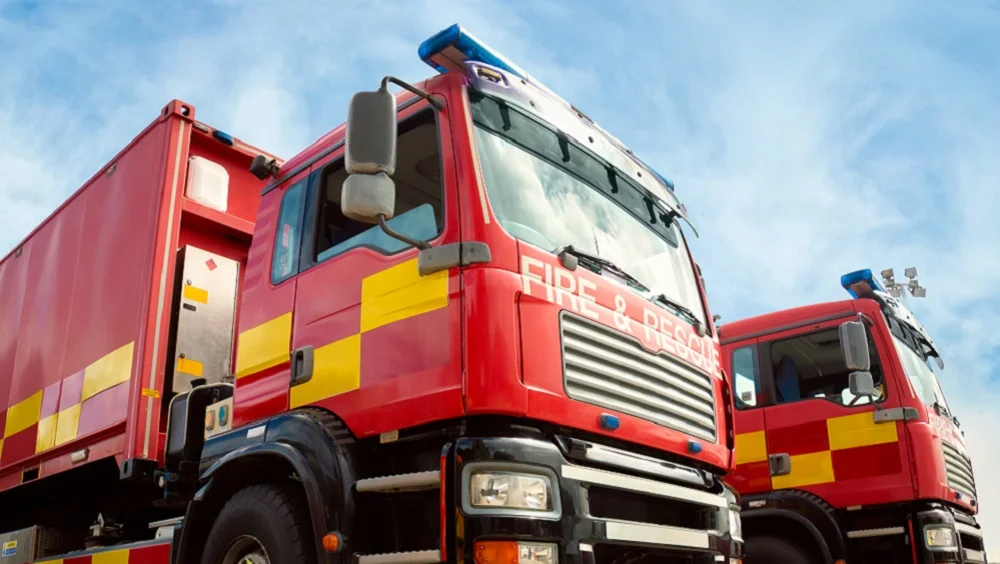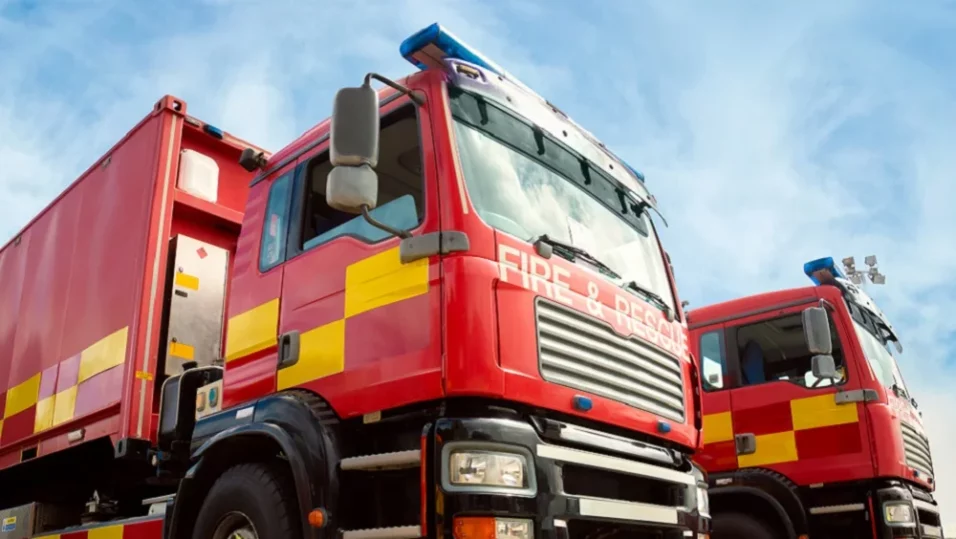



Time for Change for fire alarms in Scotland
By Chubb | 8th June 2023




By Chubb | 8th June 2023
From July 1, 2023, the Scottish Fire & Rescue Service (SFRS) will stop attending automatic fire alarm (AFA) callouts to commercial business and workplace premises. Unless a fire has been confirmed, firefighters will not attend AFAs at factories, offices, shops and leisure facilities. However, the new rules do not apply to premises where there could be someone asleep – such as hospitals, care homes, hotels or domestic dwellings. SFRS attends more than 28,000 false alarms from workplace AFAs each year – almost one third of fire and rescue activity across Scotland. Currently, each trigger sends at least two fire engines to the scene of a suspected fire under blue light conditions. Investigating each incident can involve nine firefighters as part of the response. Under the new rules, called Time for Change, fire control centres will call a premises – or Alarm Receiving Centre – to check if there is a fire, or signs of a fire, before dispatching firefighters. The change, according to the SFRS, will result in an estimated 57 per cent reduction in attendance and free up more than 37,000 hours each year. It will also save the service more than £700,000 a year. Unnecessary callouts place a drain on frontline services, increase risk to road users and can cause disruption to the community. It will also free up capacity to fight fires, carry out more community prevention work and train staff. The change is taking place following the SFRS public consultation in 2021. It will bring Scotland in line with the way most of the UK fire services operate. The consultation received 600 responses from members of the public, partner agencies, staff and businesses.
SFRS staff will advise the caller that they will not attend unless a backup 999 call confirming a fire, or signs of a fire, is received from a duty holder, Alarm Receiving Centre (ARC) specialist or a member of the public. However, the types of property categorised as having ‘sleeping provision’ will be exempt and will still get an immediate response. Residential care homes will get two fire appliances at any time of day or night. All other premises with sleeping accommodation will get one fire appliance between the hours of 7am and 6pm, or two from 6pm-7am. If the alarm system is sophisticated enough to determine that a heat detector, multi-sensing detector, manual call point, sprinklers, or multiple detectors have activated, fire engines will be dispatched without the need for further investigation. SFRS encourage duty holders to engage with ARCs to discuss capabilities and ensure their systems meet the requirements to identify strong indicators of fire.
The duty holder, who could be the employer, the occupier or owner, must carry out a fire risk assessment of the premises. Duty holders must ensure that premises are safe for staff, visitors and occupants. Ignoring them or assuming the SFRS has been notified could put people at risk. They have a responsibility under the Fire (Scotland) Act 2005 to maintain facilities and equipment – failure to do this could result in prosecution. They are also responsible for investigating a fire alarm. However, according to London Fire Brigade, 47 per cent of fires occur between 4pm and 10pm – when no-one is on site and available to check for a fire. Sixty per cent of businesses that suffer a significant fire never recover.
If you partner with Chubb, we offer a comprehensive remote monitoring service for all fire systems, giving you the confidence that your building is in safe hands with a 24/7 response from Alarm Receiving Centre specialists. Initially, we will carry out an assessment of your premises to evaluate and advise on a specific course of action. A monitored fire alarm ensures rapid response to a fire alarm activation, maintains business continuity, and protects data and assets.
False alarms can be caused by cooking fumes, steam from shower rooms or industrial processes, incense and candles, dust or a lack of maintenance. To avoid unnecessary false alarms, SFRS suggests commercial dwelling duty holders review their Fire Safety Risk Assessment, keeping a log of all false alarms to identify any trends which can be raised with your alarm engineers. They should check detector types and their location and ask an alarm engineer if moving the detectors would reduce activations. Commercial premises should also investigate upgrading automatic fire detection (AFD) systems that have become obsolete with modern technology. AFD systems should be well-maintained – and further guidance sought from the alarm system provider.
Duty holders must ensure that regular assessments are carried out to keep everyone safe. Chubb provides expert fire risk assessments for business premises to give you confidence in your workplace safety. An assessment should consider the adequacy of fire safety measures such as fire alarms, fire suppression, emergency evacuation procedures, and staff training. Our fire safety consultants are trained and experienced in fire safety. Quite often they have held senior ranking positions within the Fire Rescue Service and hold a minimum qualification of Graduate Member of the Institution of Fire Engineers (IFE). For further advice on how Chubb can support you with the changes taking place in Scotland, contact our team on [email protected]